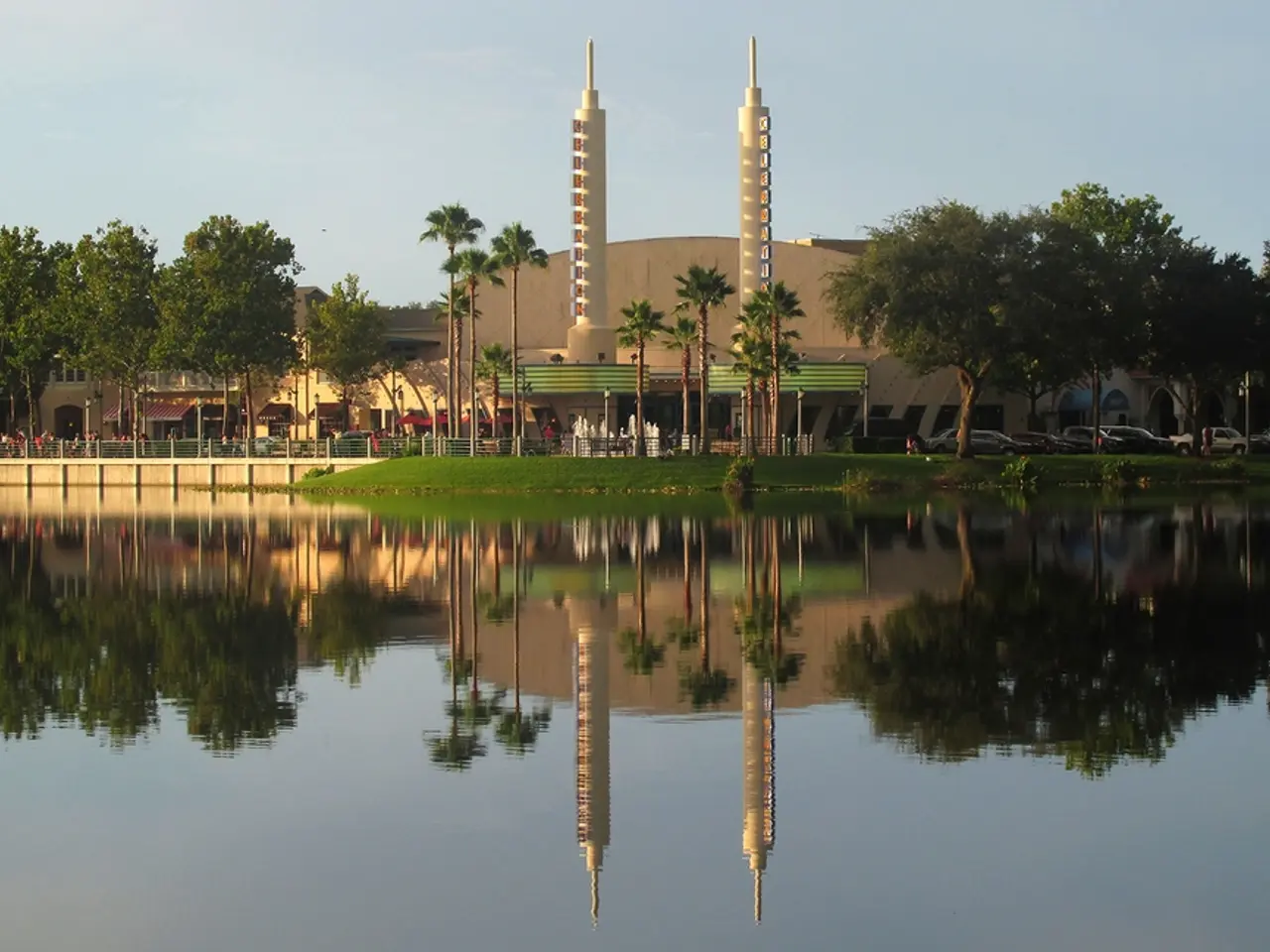Pioneering Technological Advancements for an Eco-Friendly Tomorrow
In recent years, Blue Technology has emerged as a game-changer in addressing global challenges related to water scarcity, pollution, and climate change. This innovative field combines digital, filtration, desalination, sensor, and AI technologies to balance human needs with the health of the planet's water systems.
One of the key innovations in Blue Technology is the development of advanced filtration and IoT-enabled water filters, such as arsenic removal filters. These filters, which integrate sediment filtration, carbon filtration, UV disinfection, and real-time arsenic monitoring sensors, provide safe drinking water at a household scale, particularly in regions like India’s West Bengal and Assam, where arsenic contamination has been a significant issue.
Another significant development is the creation of hybrid systems that combine Reverse Osmosis (RO) with solar desalination. Traditional RO systems often waste 50-60% of input water as brine, exacerbating scarcity issues. New hybrid systems, however, use nanocoated absorber surfaces to recover pure water from brine waste sustainably, making them crucial for water-stressed areas.
Portable strip-based and electrochemical sensors have also been developed to detect heavy metals like mercury, arsenic, lead, and cadmium at parts per billion levels within minutes. These sensors support rapid, on-site contamination detection for seafood industries and environmental agencies, enhancing pollution monitoring.
In the realm of waste and material management, platforms like CircularPass, CircularPort, and WasteTrace utilize blockchain and IoT to ensure transparency, lifecycle data tracking, and regulatory compliance. These solutions improve environmental impact management with traceability and circular economy principles, which indirectly supports water sustainability by optimizing industrial waste handling.
Blue Technology also plays a vital role in marine conservation and ecosystem management. AI predictive models process real-time data from autonomous underwater vehicles to forecast ocean chemistry changes and support conservation strategies. For instance, AI has predicted coral bleaching events with 90% accuracy six months in advance, enabling preemptive protective measures in the Great Barrier Reef.
AI is also used to guide effective marine spatial planning and species conservation. Models that analyze animal movement and environmental data have helped establish new marine protected areas for endangered monk seals, resulting in population increases. Furthermore, AI models combined with oceanographic data and species migration patterns have reduced bycatch of endangered whales by 70% in the Gulf of Maine, reducing unintended marine life harm and supporting biodiversity.
In summary, Blue Technology represents a multi-disciplinary, technologically advanced approach toward solving water-related environmental challenges and marine ecosystem conservation at different scales. This innovative field will continue to transform how we interact with the world's oceans and freshwater resources, contributing to a more sustainable future for all.
[1] CircularPass, CircularPort, and WasteTrace: https://www.forbes.com/sites/forbesbusinesscouncil/2021/04/22/the-future-of-waste-management-is-here-and-its-blockchain-based/?sh=6c36811c7855 [2] Arsenic removal filters: https://www.sciencedirect.com/science/article/pii/S2352461819304591 [3] RO + solar desalination hybrids: https://www.sciencedirect.com/science/article/pii/S0048969718310543 [4] AI predictive marine ecosystem models: https://www.sciencedirect.com/science/article/pii/S0960148119303161
- The development of blockchain-based platforms, such as CircularPass, CircularPort, and WasteTrace, is crucial in the environmental-science sector, as they contribute to a sustainable future by enhancing transparency, lifecycle data tracking, and regulatory compliance in the finance aspect of waste and material management.
- The integration of renewable energy, like solar power, with Reverse Osmosis (RO) systems has led to the creation of sustainable hybrid systems that minimize water waste and address climate-change-related scarcity issues, particularly in water-stressed areas.
- Advancements in science and technology have enabled the creation of IoT-enabled water filters, like arsenic removal filters, which are essential in addressing environmental issues in regions such as India’s West Bengal and Assam, where arsenic contamination is prevalent.




